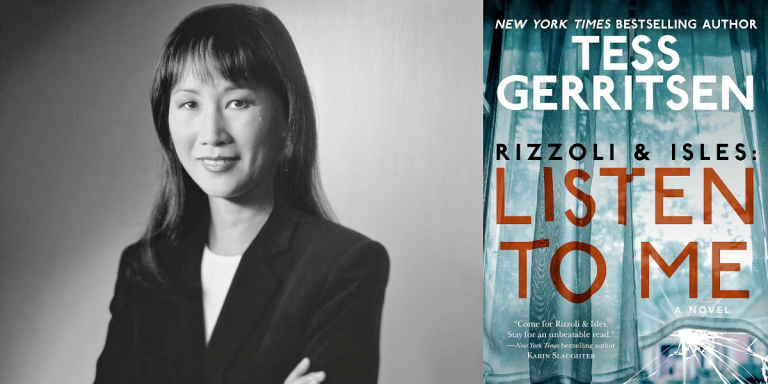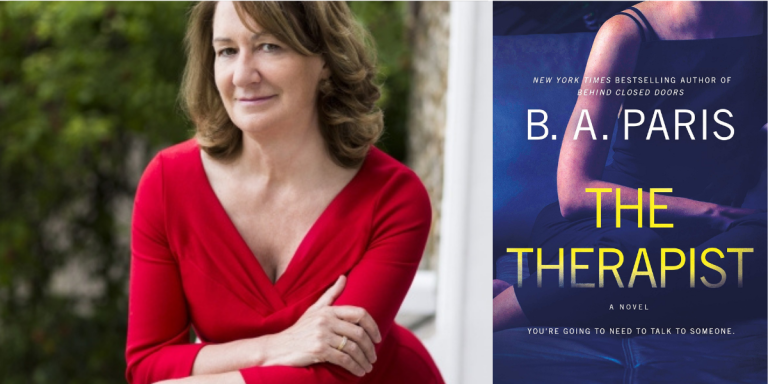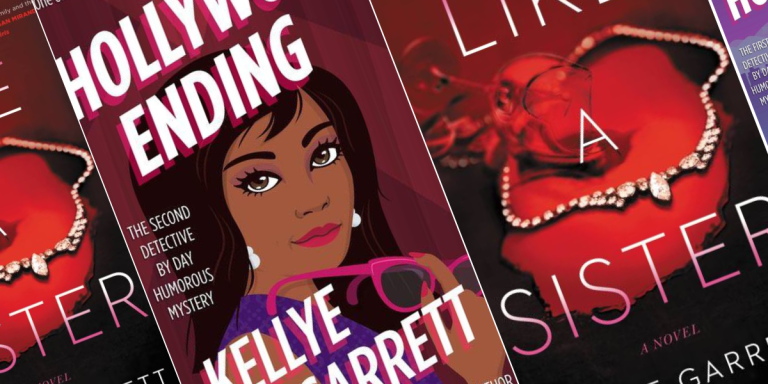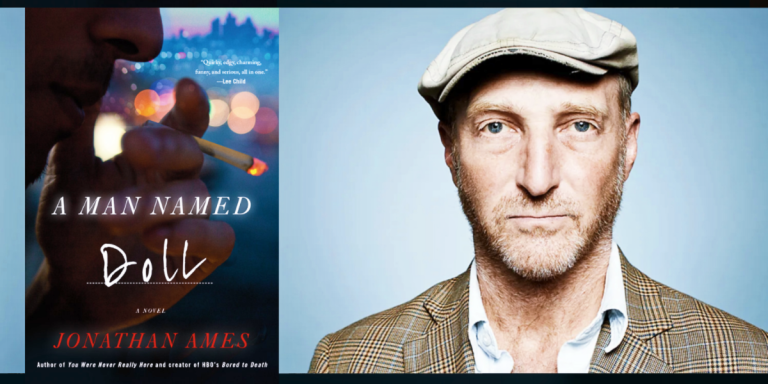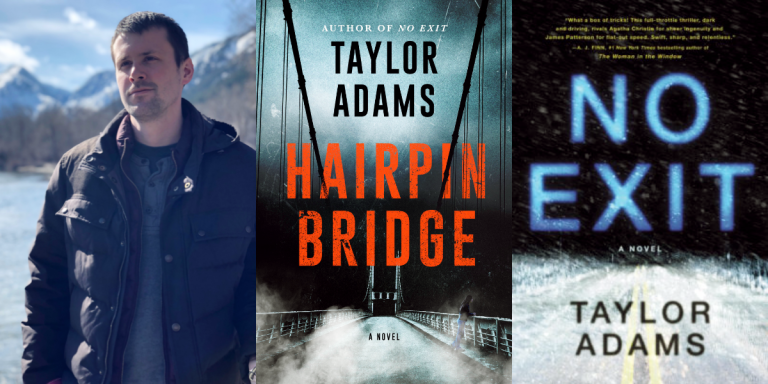Exploring Crime Fiction and ‘The It Girl’ With Ruth Ware
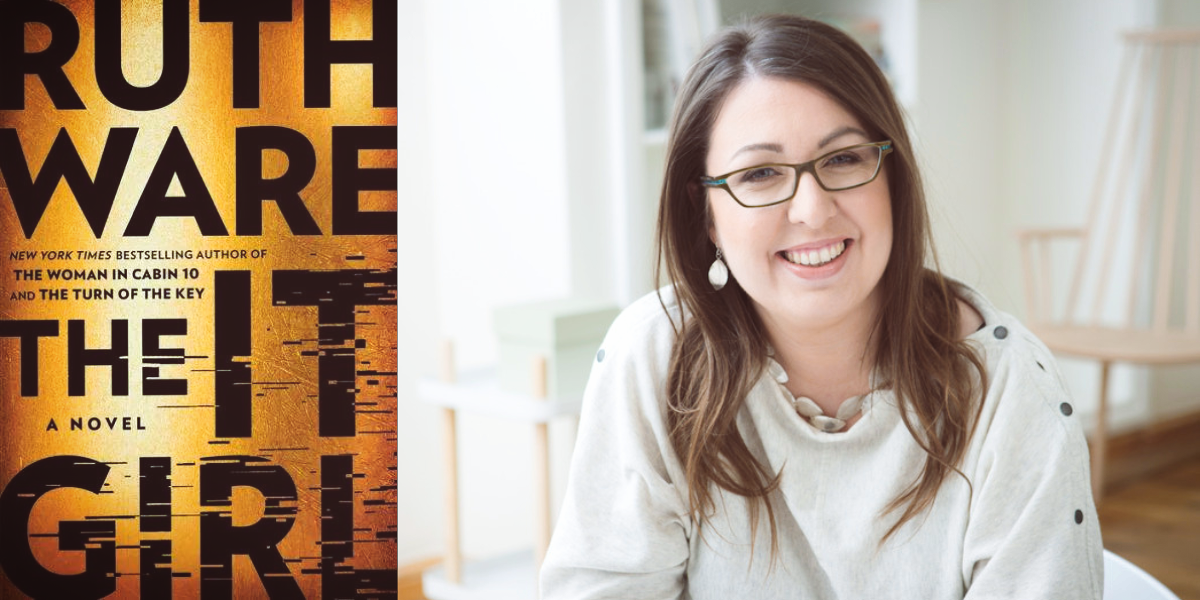 The It Girl is your seventh thriller that follows Hannah Jones as she uncovers the truth about the mysterious death of The It Girl (April Clarke-Cliveden) that occurred years prior when they were in college. How has your experience writing crime novels changed since your thriller debut In a Dark, Dark Wood? How has it stayed the same?
The It Girl is your seventh thriller that follows Hannah Jones as she uncovers the truth about the mysterious death of The It Girl (April Clarke-Cliveden) that occurred years prior when they were in college. How has your experience writing crime novels changed since your thriller debut In a Dark, Dark Wood? How has it stayed the same?
In some ways not much has changed—I still go to my desk with a set of characters and a “what if” that haunts me in some way I can’t quite define, and spend the next days, weeks and months exploring them. The actual process of writing is pretty much exactly the same. However the unexpected success of In a Dark Dark Wood (unexpected to me, anyway!) definitely changed how I felt about my books for a while. Writing The Woman in Cabin 10 was hard—it’s impossible not to compare the ugly duckling first draft on your computer with the fully-fledged book that’s out in the world, and I wanted to show I could write another book that was just as twisty, just as compelling, just as page-turning as my first. I think it’s why I threw everything at poor Lo in that book! Since then I’ve learned to slow down and trust my reader, and I hope that my readers have grown to trust me—to know that even if it takes a while for me to come to the point, there always is a point, and that what looks like extraneous detail could be hiding the clue to the whole mystery.
If there’s anything to know about a Ruth Ware novel it’s that you’ll always have an energetic cast of characters and there will always be crazy twists. Where do you find inspiration for your novels? What’s the most unlikely place you’ve found inspiration for one of your stories?
I find inspiration everywhere! Weird stories on social media, news articles, that strange couple behind me in the restaurant having a huge argument… I don’t tend to base novels on real life events, that wouldn’t feel right to me. But there’s often a real life issue or concern that I’m nibbling at—something broader than one particular news story, something that affects us all. In this book that issue is probably the effects of the justice system on the people involved, and the way the media treats victims, and in particular victims like April.
Probably the quirkiest bit of inspiration I’ve found was on holiday in Northern France when we stayed in a very eccentric little town that was strung all over with fishing nets—swathed across doorways and windows. I found it incredibly spooky, they looked almost like giant spiderwebs. That went straight into the village in The Lying Game.
Your narratives tend to be fast-paced and filled with intrigue. From a reader’s perspective, we often finish your books wondering how the heck you did that. What’s most challenging—and easiest—about writing crime fiction?
I think the easiest thing about writing crime fiction is that you have a kind of ready-made framework imposed upon you, and a place to start plotting. All my books are at bottom a whodunnit, or a whydunnit. So I plot starting from that point, what happened, who did it, and why? The whole book is a progress towards that resolution—revealing the answer to that question and explaining how exactly all the pieces fit together. Having that structure in mind helps keep the book focused and on track.
The hardest thing is the readers—crime readers are generally very savvy and very well read, and they tend to read a lot of crime. All that makes it very difficult to pull the wool over their eyes! For that reason I try to avoid writing books that succeed or fail based purely on the big reveal or the twist. If your book hangs on keeping something secret and your reader guesses the secret then you don’t want that to spoil the whole book. I hope that my characters are real enough and three-dimensional enough that even if the reader guesses the solution, they still care enough about the characters to feel invested in finding out how that plays out.
Do you plan to continue writing crime fiction or would you ever, say, continue working in other genres as you did under the alias Ruth Warburton?
I mean, never say never! At the moment I’m enjoying writing crime but I could definitely see myself branching out. The good thing about crime is that it encompasses pretty much anything you want to explore.
Your protagonists are usually ordinary women who find themselves in extraordinary situations. Is there a character type you’re dying to explore but haven’t had a chance to just yet?
I keep trying to write a really good anti-hero but I think I’m too sympathetic to my main characters. They always turn out nicer than I intended!
Aside from Agatha Christie, who you’ve often been compared to, who are some other authors who have inspired your writing career?
I think it’s impossible to write psychological thrillers without harking back to Daphne du Maurier, who arguably invented so many of the tropes of the genre. And of course I’m endlessly inspired by the brilliant writers working in the genre now—Gillian Flynn, Lisa Jewell, Dorothy Koomson, Riley Sager, Shari Lapena… I could go on all night.
What’s next? Seriously, we have to know.
Another book of course! I’m writing a new one now. I can’t talk about it too much as it’s still at the ugly duckling stage mentioned above, but at the moment it’s perhaps closer to a classic thriller than any book I’ve written so far, and I’m having huge fun!
Discover the Book
By clicking 'Sign Up,' I acknowledge that I have read and agree to Hachette Book Group’s Privacy Policy and Terms of Use
WHAT TO READ NEXT
